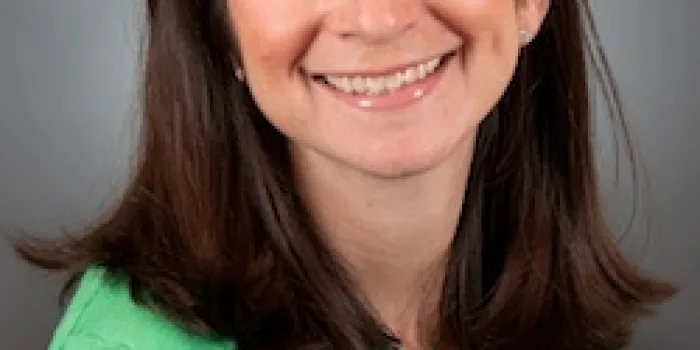HemAware is conducting a series of interviews with recipients of the NHF-Shire Clinical Fellowship. It is funded through the generous support of Shire. The objective of this grant is to increase the number of skilled clinicians committed to providing comprehensive care for individuals with bleeding and clotting disorders and to prepare recipients for academic careers.
This interview was conducted with Rachael Grace, MD, MMSc, Director, Hematology Clinic, Boston Children’s Hospital. The fellowship was funded from 2010 to 2012.
Why did you decide to study medicine?
Grace is a people person who enjoyed working in basic science research in high school and college. “My combined interest in working with people and scientific research led on a path to a career in medicine,” she says. She got her bachelor’s in human biology and her medical degree from Brown University in Providence, Rhode Island.
What initially attracted you to hematology?
Great early mentors, including Ellis Neufeld, MD, PhD, and a hematology course during Grace’s second year of medical school helped steer her career path. “Seeing patients with hematologic conditions as a medical student and resident solidified my interest,” she says.
How did the training and mentorship you received as an NHF-Shire Clinical Fellow affect your decision to pursue clinical care and/or research in bleeding disorders?
The two-year fellowship let Grace focus more time on coagulation disorders, in terms of both her research and clinical care. “The fellowship allowed me to participate in our hemophilia program in ways that I wouldn’t have otherwise been able to,” she says. In addition, she plunged deeper into research on immune thrombocytopenia (ITP), a rare bleeding disorder in which the immune system destroys platelets.
Are you still engaged in the clinical aspects of patient care or bleeding disorders research? In what aspect of care are you most interested?
As director of the hematology clinic at Boston Children’s Hospital, Grace spends about 25% of her time with patients and 75% pursuing research. In 2012, she launched the Pediatric ITP Consortium of North America, a collaborative research consortium of more than 20 investigators from the US and Canada.
Did your NHF-Shire Clinical Fellowship assist in advancing your own position at your institution? Or did it serve as a building block to further your career in coagulation?
The fellowship helped Grace succeed in both areas, she says. With dedicated time for research, the fellowship paved the way for her current K12 grant from the National Heart, Lung, and Blood Institute (NHLBI. “It allowed me to make progress in my research and also to become a better clinician for patients with bleeding and clotting disorders,” she says.
Where do you think bleeding disorders research and clinical care may be headed in the near future? In the next decade?
Grace believes that longer-acting factor products and gene therapy developments are coming in the foreseeable future. But she also predicts that patient-reported outcomes will be more highly valued in the short term. “I think we’ll be listening more to what patients have to say about how treatments and approaches make them feel.”
When you are not working, how do you relax or escape from your work?
With two sons, ages 3 and 5, Grace spends most of her downtime keeping up with their activities. She and her husband also enjoy traveling.

